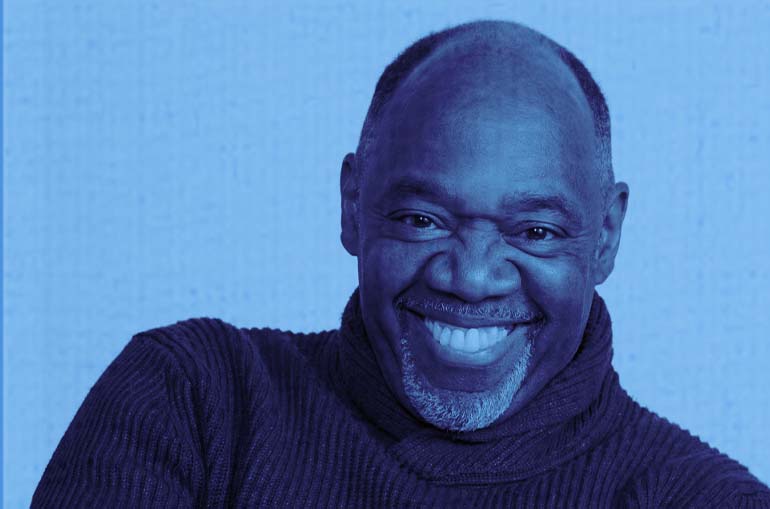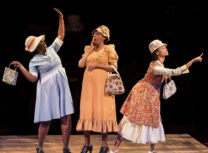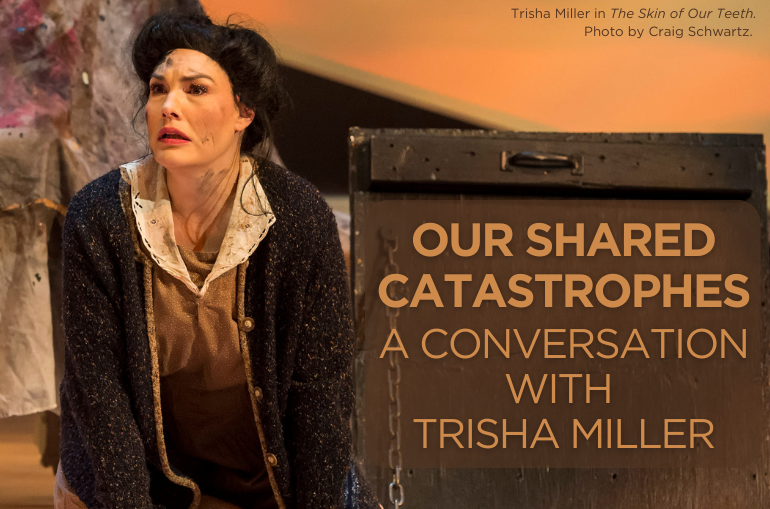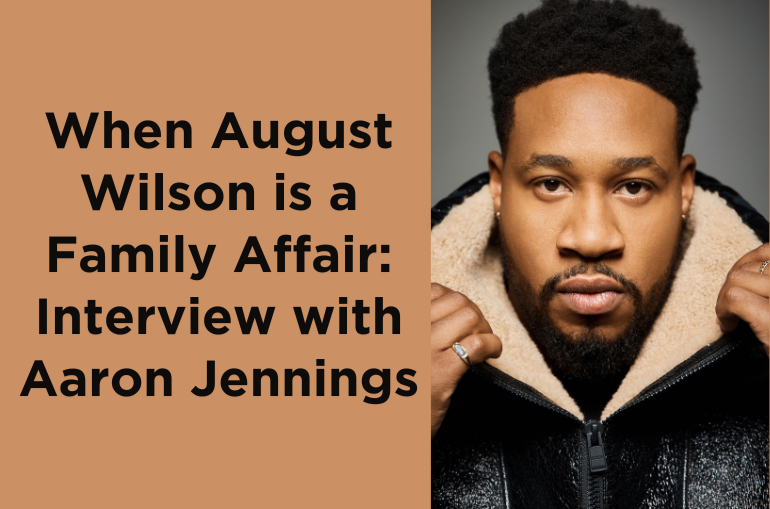Seven Guitars Q&A with Gregg T. Daniel

By A Noise Within
October 7, 2021
Gregg T. Daniel returns this fall to direct Seven Guitars, continuing A Noise Within’s exploration of August Wilson’s entire American Century Cycle. Learn more about his vision for the production.
What attracted you to Seven Guitars?
There are a number of entry points into Seven Guitars which attracted me. Of course, the use of music is critically important. Our protagonist, Floyd “Schoolboy” Barton, is a Blues musician. The Blues defines and consumes Floyd’s life, his fiercest desire is to become a successful Blues musician. Systemic racism confronts him at every turn, yet Floyd dares to dream big and prays luck will turn his way sooner or later. The irony of the play is Floyd’s redemption comes in an entirely unexpected and tragic way. The historical nature of the play attracts me. I’m fascinated by American stories which remind us of our past, of the places we’ve been as a society, and where we might be headed. August Wilson believed that unless we embrace the past with all its pain and beauty, we can’t determine our present or create our future. Seven Guitars takes place in 1948. Looking at what the world was like during that era fascinates me.
What is your role as the director? How did you begin your process for directing this show?
My role as a director is to create a vision of the play guided by the playwright’s words and my instincts. I begin by asking myself, what are the questions that lie at the heart of the play? How do I address them? What are their importance to us? My vision for the production may not be the same vision other directors have had for the material, it is uniquely mine. What’s exciting about any vision is to allow it to be influenced by the designers, dramaturg, and actors gathered to mount the play. It’s my hope that once it is shared, it will inspire our production team and ultimately our audience. I don’t see my job as having all the answers, my job is to ask the right questions, questions which will provide a foundation for exploration while encouraging all our talented artists to offer their creativity.
Ever since I was young, I’ve been a reader. Reading has opened up worlds in ways I could never imagine. I’m a firm believer in “you can’t lead, if you don’t read.” When I direct a play, I plunge into past reviews, commentaries, scholarly studies, etc. I want to absorb everything which has been written on the play. Then, I put it all aside when we begin rehearsals and trust whatever knowledge I gained will help to inform my choices. No one attends a performance to be moved by the research; so much of directing requires intuition.
Who is your favorite character in Seven Guitars and why?
That’s a tough question, to single out one character in Seven Guitars is akin to picking out a favorite child among your family. As a director, you come to intimately know and understand each of these characters. I attempt to ferret out who they are, what they want out of life, what are their disappointments and their triumphs. This kind of investigation leads me to know and respect each one. Now that I’ve gone a long way around the question, I’ll answer it. I would have to say Hedley is ONE of my favorite characters. His is one of the most interesting struggles in the play. Hedley is written in the vein of those Wilson warriors like Solly Two Kings (Gem of the Ocean), Hambone (Two Trains Running), and Harold Loomis (Joe Turner’s Come and Gone), etc. They seem to be out of touch in the world around them. However, they are gifted with a very unique perspective which others don’t necessarily see, hear, or understand. Hedley’s take on the Black man’s rightful position in a society which would deny his humanity makes his vision almost messianic. Hedley is an eloquent activist, one who’s well ahead of his time.
Why this play right now?
Classic plays are for all time. The struggle of men and women to cope with the challenges life presents is innately what good stories are made of. In this case, one of the characters in the play (Floyd Barton) is told by a judge who sentences him to ninety days in the jailhouse that “Rockefeller worth a million dollars and you ain’t worth two cents.” This indignity profoundly affects Floyd as he struggles for the rest of the play trying to validate his life’s worth. I believe in the face of the “Me Too” and “Black Lives Matter” movements as well as the murder of George Floyd, our society is in the process of reassessing the “worth” of its under represented and marginalized communities. So much of a BIPOC person’s value and self esteem is defined through the specter of White Power and Privilege, we’ve been forced to confront the pernicious nature of prejudice and bigotry and are tasked as a nation to address it.








